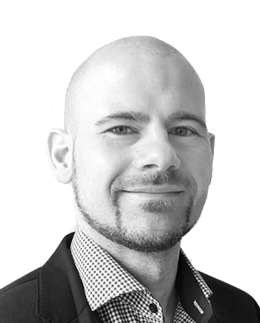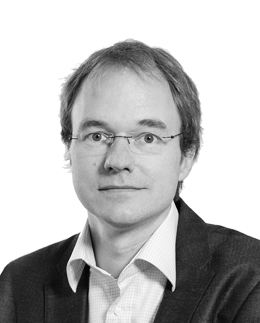Publications
177 Übereinstimmungen gefunden / 1-15 16-30 31-45 46-60 61-75 76-90 91-105 106-120 121-135 136-150 151-165 166-177
3D animation of single stage batch distillation for distance learning.Vorhauer, N., Mathew, P., Gunasekaran, H., Do, M., Thalakkotoor, S., ... & Broneske, D. (2021).3D animation of single stage batch distillation for distance learning. In IATED Academy (Hrsg.), EDULEARN21 Proceedings (S. 476-483). Valencia, Spain: IATED Academy. https://doi.org/10.21125/edulearn.2021.0146 |
StuMa: Ursachen der Studienaufgabe im Masterstudium. Daten- und Methodenbericht zur DZHW-Befragung StuMa 2020.Isleib, S., Schmidtchen, H., & Weber, A. (2021).StuMa: Ursachen der Studienaufgabe im Masterstudium. Daten- und Methodenbericht zur DZHW-Befragung StuMa 2020. Hannover: FDZ-DZHW. Abstract
The study "StuMa" deals with the causes of dropping out of a master's program and the further professional development after dropping out of a master's program. While there are some data available for undergraduate programs that allow an analysis of possible causes of dropout, there is no suitable database for master's programs. Due to the comparatively low dropout rates in master's programs, dropout in this phase of studies has not yet been perceived as a research topic in higher education research. StuMa is the first nationwide survey that is aimed exclusively at Master's students [...] Full abstract: https://doi.org/10.21249/DZHW:stuma2020:1.0.0 |
16. Sozialerhebung. Daten- und Methodenbericht zur Studierendenbefragung 2000.Middendorff, E., & Wallis, M. (2021).16. Sozialerhebung. Daten- und Methodenbericht zur Studierendenbefragung 2000. Hannover: DZHW. Abstract
The Social Survey is a series of surveys on the economic and social situation of students in Germany that has been in existence since 1951. At three- to four-year intervals, a cross-section of students is surveyed on aspects of university access, structural features of study, social and economic situation, including income and cost of living, employment, housing situation, and socio-demographic characteristics such as ethnic and social origin, partnership status and parenthood. The data package includes data from the survey of German, educationally native, and educationally foreign students conducted as part of the 16th Social Survey (2000), that includes a focus on computer use and new media. https://doi.org/10.21249/DZHW:ssy16:1.0.0 |
An investigation of atomic synchronization for sort-based group-by aggregation on GPUs.Gurumurthy, B., Broneske, D., Schäler, M., Pionteck, T., & Saake, G. (2021).An investigation of atomic synchronization for sort-based group-by aggregation on GPUs. In IEEE (Hrsg.), IEEE 37th International Conference on Data Engineering Workshops (ICDEW) (S. 48-53). Chania, Greece: IEEE. https://doi.org/10.1109/ICDEW53142.2021.00016 |
Analysis of GPU-Libraries for rapid prototyping database operations : A look into library support for database operations.Subramanian, H. K. H., Gurumurthy, B., Campero Durand, G., Broneske, D., & Saake, G. (2021).Analysis of GPU-Libraries for rapid prototyping database operations : A look into library support for database operations. In IEEE (Hrsg.), IEEE 37th International Conference on Data Engineering Workshops (ICDEW) (S. 36-41). Chania, Greece: IEEE. https://doi.org/10.1109/ICDEW53142.2021.00014 |
Eurostudent VII. Micro Data. Data and methods report.Cuppen, J., Muja, A., Hauschildt, K., Buck, D., & Daniel, A. (2021).Eurostudent VII. Micro Data. Data and methods report. Hannover: DZHW. Abstract
The EUROSTUDENT project collects and analyses comparable data on the social dimension of European higher education. A wide range of topics related to students’ social and economic conditions are covered. The project strives to provide reliable and insightful cross-country comparisons. It does this through coupling a central coordination approach with a strong network of national partners in each participating country. In this way, an assessment of the strengths and weaknesses of the respective national frameworks in international comparison can be made. [...] Full abstract: https://doi.org/10.21249/DZHW:es7:1.0.0 |
Towards multi-purpose main-memory storage structures: Exploiting sub-space distance equalities in totally ordered data sets for exact knn queries.Schäler, M., Tex, C., Köppen, V., Broneske, D., & Saake, G. (2021).Towards multi-purpose main-memory storage structures: Exploiting sub-space distance equalities in totally ordered data sets for exact knn queries. Information Systems, 2021 (online first). https://doi.org/10.1016/j.is.2021.101791 |
Modern applications and challenges for rare itemset mining.Darrab, S., Broneske, D., & Saake, G. (2021).Modern applications and challenges for rare itemset mining. International Journal of Machine Learning and Computing, 2021(11), 208-218. https://doi.org/10.18178/ijmlc.2021.11.3.1037 |
Schule, Ausbildung, Arbeitslosigkeit. Übergänge am Beginn des Erwachsenenalters und ihre Relevanz für delinquentes Handeln.Daniel, A. (2021).Schule, Ausbildung, Arbeitslosigkeit. Übergänge am Beginn des Erwachsenenalters und ihre Relevanz für delinquentes Handeln. Kriminologie und Kriminalsoziologie 2021. Münster: Waxmann. |
DZHW-Studienberechtigtenpanel 2015.Schneider, H., & Vietgen, S. (2021).DZHW-Studienberechtigtenpanel 2015. Daten- und Methodenbericht zu den Erhebungen des Studienberechtigtenjahrgangs 2015 (1. und 2. Befragungswelle). Hannover: DZHW. Abstract
The DZHW Panel Study of School Leavers 2015 is part of the School Leavers panel series of the DZHW, which records information on post-school educational and career paths of school leavers with a higher education entrance qualification. For every graduate year (cohort) a series of survey waves are carried out with each wave occurring at a different time before and after graduation, implemented as a combined cohort-panel-design. The Panel Study of School Leavers 2015 comprises the 20th cohort of the survey series with two survey waves. https://doi.org/10.21249/DZHW:gsl2015:1.0.1 |
17.–21. Sozialerhebung 2003 – 2016. Daten- und Methodenbericht zum gepoolten Datensatz der fünf Studierendenbefragungen (Version 1.0.0).Middendorff, E., & Wallis, M. (Hrsg.). (2021).17.–21. Sozialerhebung 2003 – 2016. Daten- und Methodenbericht zum gepoolten Datensatz der fünf Studierendenbefragungen (Version 1.0.0). Hannover: DZHW. Abstract
The Social Survey is a series of surveys on the economic and social situation of students in Germany that has been in existence since 1951. At three- to four-year intervals, a cross-section of students is surveyed on aspects of university access, structural features of study, social and economic situation, including income and cost of living, employment, housing situation, and socio-demographic characteristics such as ethnic and social origin, partnership status and parenthood. The data package includes data from the core set of the 17th to 21st Social Survey (2003 - 2016). The five individual scientific use files available at the FDZ-DZHW [...] Full abstract: https://doi.org/10.21249/DZHW:ssypool:1.0.0 |
Selective caching: A persistent memory approach for multi-dimensional index structures.Jibril, M. A., Götze, P., Broneske, D., & Sattler, K.-U. (2021).Selective caching: A persistent memory approach for multi-dimensional index structures [Sonderheft]. Distributed and Parallel Databases (DAPD), 2021(1/21)(Special Issue on Self-Managing and Hardware-Optimized Database Systems 2020), 1-20. https://doi.org/10.1007/s10619-021-07327-0 |
SQLValidator – An online student playground to learn SQL.Obionwu, V., Broneske, D., Hawlitschek, A., Köppen, V., & Saake, G. (2021).SQLValidator – An online student playground to learn SQL. Datenbank-Spektrum, 2021 (online first). https://doi.org/10.1007/s13222-021-00372-0 |
DZHW-Absolventenpanel 2013.Hoffstätter, U., & Vietgen, S. (2021).DZHW-Absolventenpanel 2013. Daten- und Methodenbericht zur Absolvent(inn)enkohorte 2013 (1. Befragungswelle). Hannover: fdz.DZHW. Abstract
The DZHW Graduate Panel 2013 is part of the DZHW Graduate Study Series, which uses standardised surveys to gather information on the studies, career entry, career development and further qualification of university graduates. The first Graduate Panel was conducted in 1989, since then every fourth graduate cohort has been surveyed. For each cohort of graduates, several waves of interviews are conducted, each wave taking place at different intervals from the time of graduation. The 2013 Graduate Panel is the seventh cohort of graduates in the study series. Even more than the graduate cohorts of 2005 and 2009, [...] Full abstract: https://doi.org/10.21249/DZHW:gra2013:2.0.0 |
An investigation of alternatives to transform protein sequence databases to a columnar index schema.Zoun, R., Schallert, K., Broneske, D., Trifonova, I., Chen, X., ... & Saake, G. (2021).An investigation of alternatives to transform protein sequence databases to a columnar index schema [Sonderheft]. Algorithms , 2021(14(2))(Biological Knowledge Discovery from Big Data). https://doi.org/10.3390/a14020059 |
Contact


